Πόσο εύκολα το 1956 υιοθέτησαν τη λέξη «τρομοκράτες»
Γιορτάσαμε φέτος τα 70χρονα της θρυλικής ΕΟΚΑ 1955-59, που ξεκίνησε την 1η Απριλίου 1955 έναν ένδοξο αγώνα για Ένωση της Κύπρου με την Ελλάδα. Αλλά, δυστυχώς, η Κύπρος μας την Ένωση δεν κατάφερε να την αξιωθεί το 1960 αλλά ούτε την ΑΠΕΛΕΥΘΕΡΩΣΗ της, από τον τουρκικό ζυγό που υπέφερε με τις δύο βάρβαρες τουρκικές εισβολές το 1974. Οι οποίες συνεχίζονται με 40.000 τουρκικών στρατευμάτων στα καταπατημένα της εδάφη, με χιλιάδες Τούρκους κουβαλητούς (βάσει σχεδίου Δρος Νιχάτ Ερίμ 1956), για να γεμίσουν το κενό που άφησε ο ξεριζωμός των 170.000 και πλέον Ελλήνων από τις πατρογονικές τους εστίες…

Πηγαίνοντας τον χρόνο πίσω στην Ιστορία, που δεν ξεγράφεται, σύντομα μετά την έναρξη του Αγώνα της ΕΟΚΑ για Ένωση με την Ελλάδα, οι Βρετανοί αποικιοκράτες διερωτώντο τι να ονόμαζαν τους αγωνιστές μας. Το πλούσιο βρετανικό Εθνικό Αρχείο μάς ενημέρωσε ΚΑΙ για τούτο.
Με τηλεγράφημά του προς τον Υπουργό Αποικιών στο Λονδίνο ο τότε αποικιακός Κυβερνήτης, Στρατάρχης Σερ Τζον Χάρντινγκ (Sir John Harding), δέχθηκε να ονομάζονταν οι αγωνιστές της ΕΟΚΑ «τρομοκράτες».
Το θέμα πιο αναλυτικά είχε ως εξής: Ήταν τότε που στο Λονδίνο προσπαθούσαν να καθορίσουν στους αντάρτες της ΕΟΚΑ έναν χαρακτηρισμό. Είτε παράνομους είτε φυγόδικους και άλλα, ή τρομοκράτες. Η πρόταση έγινε λοιπόν από το Λονδίνο και, σύμφωνα με το απαντητικό τηλεγράφημα του Σερ Τζον Χάρντινγκ ημερομηνίας 31 Μαΐου 1956, με τίτλο «Φυγοδικία» (Outlawry), προς τον Υπουργό Αποικιών, για το θέμα της ονομασίας, έγραψε:
«Όσον αφορά την παράγραφο τέσσερα (που αναφερόταν στην ονομασία) δεν δίνω και μεγάλη σημασία στην επιλογή λέξεως. Ας τους ονομάσουμε ‘‘τρομοκράτες’’». Όπερ και έγινε και διατηρήθηκε μέχρι τις 23.1.2019!
(As regards paragraph four, I attach no great importance to choice of words. Let us call them ‘terrorists’).
Έγραψα «μέχρι τις 23.1.2019», γιατί τότε έγινε μια ανατροπή.
Προσέξαμε με ιδιαίτερη προσοχή ότι στη γραπτή, μάλιστα, δήλωση του Υπουργού Ευρώπης και Βορείου και Νοτίου Αμερικής, Sir Alan Duncan, ανακοινώνοντας τότε, στις 23.1.2019 από τη Βουλή των Κοινοτήτων, τη συνθηκολόγηση της βρετανικής κυβέρνησης στο αίτημα των Αγωνιστών της ΕΟΚΑ 1955-59 για αποζημίωση για τα βασανιστήρια που υπέστησαν τότε από τα Σώματα Ασφαλείας, άλλαξε το λεξιλόγιο του Υπουργείου Εξωτερικών και Κοινοπολιτείας. Εγκατέλειψαν την από το 1956 αναφορά τους προς τους Αγωνιστές ως «τρομοκράτες» και προς τον αγώνα ως «τρομοκρατία».
Στη δήλωση ο Sir Alan Duncan επίσης αναφέρει ότι ο αγώνας είχε στόχο την Ένωση της Κύπρου με την Ελλάδα. Έγραψε: «Ελληνοκύπριοι παραστρατιωτικοί διεξήγαγαν μια ένοπλη αντάρτικη εκστρατεία προσπαθώντας να τερματίσουν την Αγγλοκρατία στην Κύπρο και να εγκαθιδρύσουν ένωση της Κύπρου με την Ελλάδα».
(Greek Cypriot paramilitaries fought an armed guerrilla campaign to try to bring to an end British rule in Cyprus and establish a union between Cyprus and Greece).
Ολόκληρη η δήλωση εδώ:
I would like to update Parliament on a legal settlement that the UK Government have reached concerning civil law claims arising from the emergency period in Cyprus from 1955-59 (“the emergency”).
During the emergency, Greek Cypriot paramilitaries fought an armed guerrilla campaign to try to bring to an end British rule in Cyprus and establish a union between Cyprus and Greece. As part of the response to this campaign, the Governor of Cyprus instituted emergency measures which included the deployment of UK military and police personnel.
In July 2015, 35 individuals (since reduced to 33) brought claims against the Secretary of State for Foreign and Commonwealth Affairs and the Secretary of State for Defence regarding their treatment in detention during the emergency.
The Government have now reached an agreement with the claimants, in full and final settlement of those claims. The UK Government have agreed to pay a settlement sum of £1.000.000 in damages with an amount in legal costs to be determined by the court in due course. The settlement does not constitute any admission of liability and is not a precedent in respect of any potential future claims against the Government. Indeed, the Government have maintained throughout proceedings that the passage of time means that it is now no longer possible to establish all of the facts with certainty. However, the Government have settled the case in order to draw a line under this litigation and to avoid the further escalation of costs, which would ultimately be borne by the taxpayer.
In reaching this settlement, the UK Government reaffirm their highest respect for the memory and sacrifice of British and Cypriot service personnel and employees of the Crown who gave their lives, who lost family members or loved ones, or whose lives suffered permanent disruption as a result of the emergency.
The UK Government acknowledge the strongly held views of many Cypriots about the emergency. It is a matter of regret for the UK Government that the transition of Cyprus from British administration to independence should have been preceded by five years of violence and loss of life, affecting all residents of the island.
We must not forget the past—and indeed we must learn from it. But it is most important to look to the future. Today, the bilateral relationship that the UK shares with Cyprus is one of friendship and close partnership; spanning a broad network of security, personal, business, administrative, cultural and educational ties. The Government reaffirm their commitment to building a modern, forward-looking relationship between the UK and Cyprus, built on shared values of mutual respect and full equality.
[HCWS1269]
Υ.Γ.: Πρώτη δημοσίευση Φ.Α. «Σημερινή», 26.1.2019.
*Ερευνήτρια/δημοσιογράφος simerini.sigmalive.com
Οι περισσότεροι διαβάζουν και ΕΔΩ...








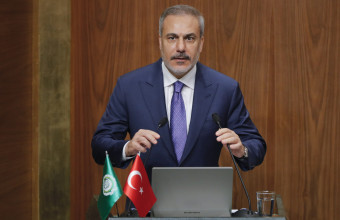



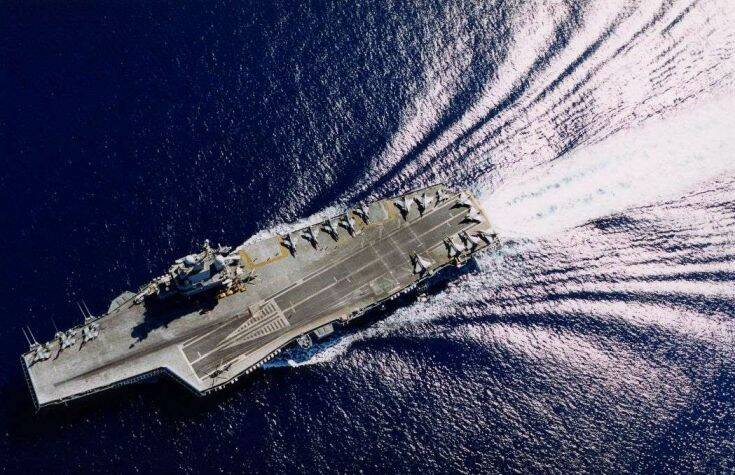
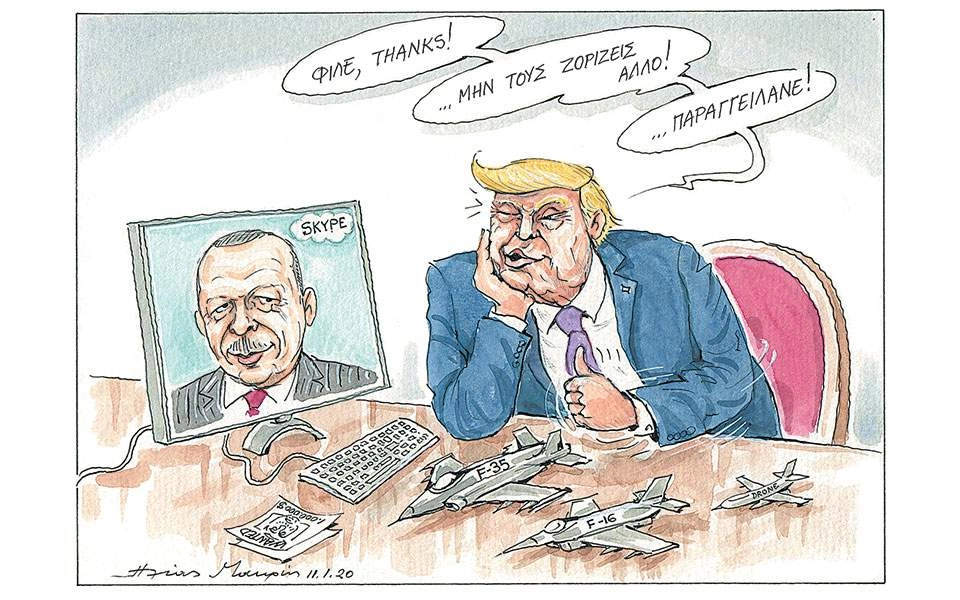
.jpg)



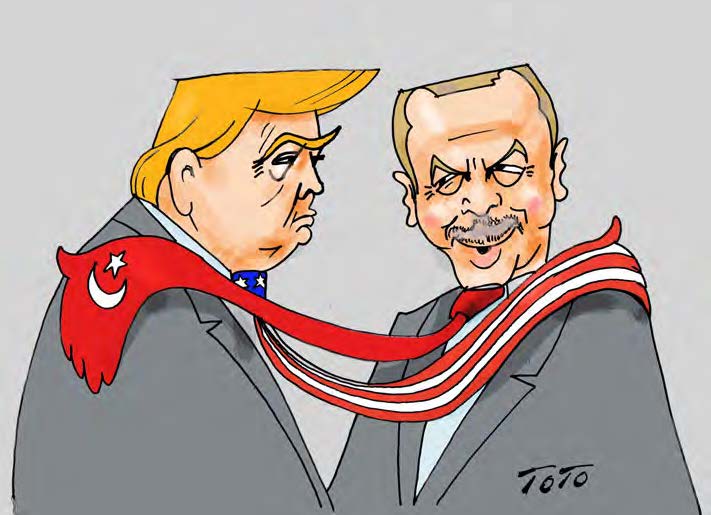
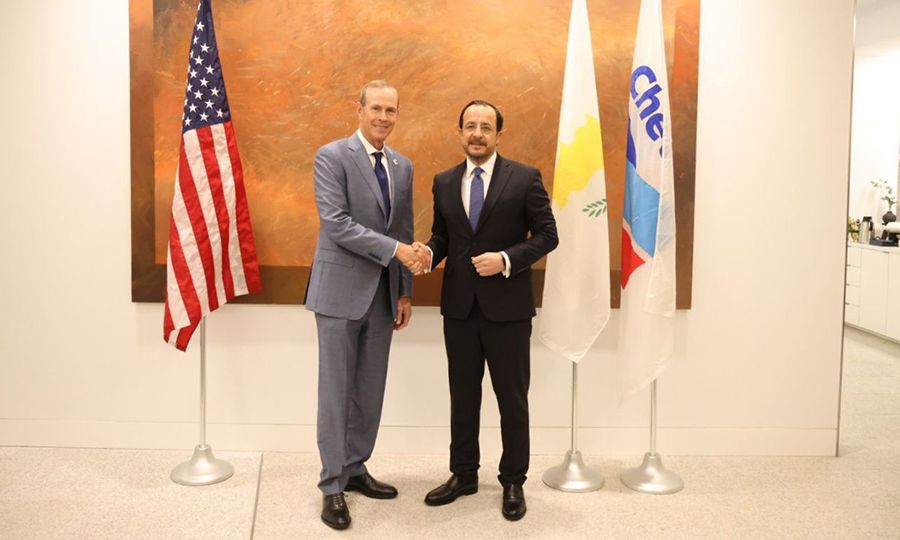


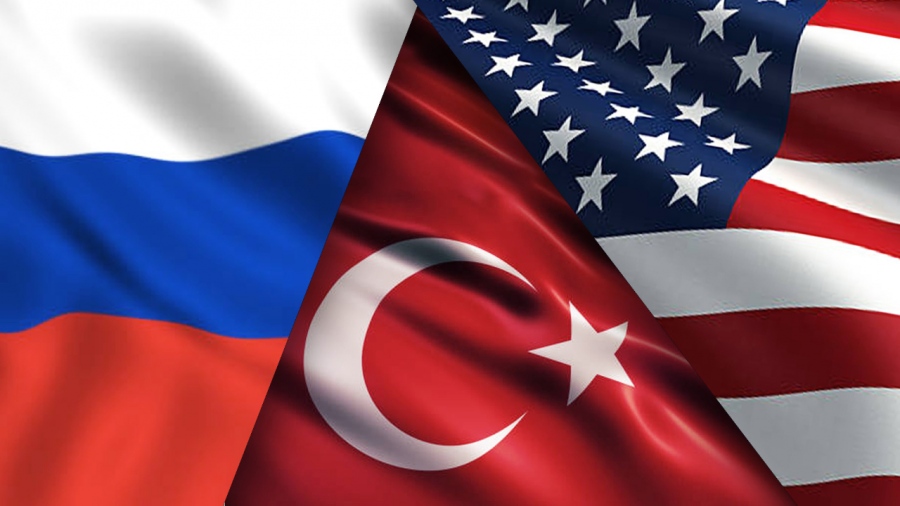

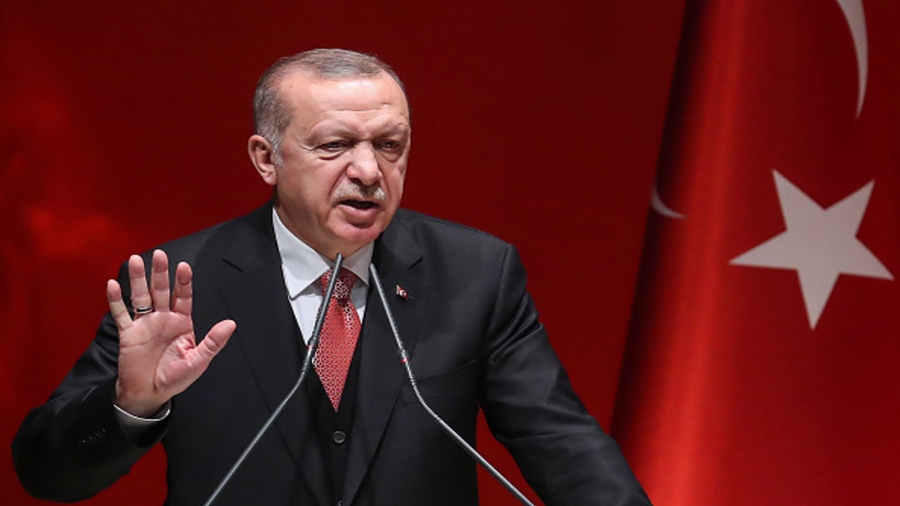 «Στεκόμαστε ισχυροί απέναντι στο παγκόσμιο σιωνιστικό λόμπι»
«Στεκόμαστε ισχυροί απέναντι στο παγκόσμιο σιωνιστικό λόμπι»
 «Ανώτεροι αξιωματούχοι της άμυνας εξετάζουν μια πρόταση για απόσυρση έως και 10.000 στρατιωτών από την Ανατολική Ευρώπη, σύμφωνα με έξι Αμερικανούς και Ευρωπαίους αξιωματούχους που ενημερώθηκαν για το θέμα», ανέφερε το NBCΤο Αμερικανικό Πεντάγωνο εξετάζει το ενδεχόμενο να αποσύρει έως και 10.000 Αμερικανούς στρατιώτες από την Ανατολική Ευρώπη, μετέδωσε το αμερικανικό δίκτυο NBC.«Ανώτεροι αξιωματούχοι της άμυνας εξετάζουν μια πρόταση για απόσυρση έως και 10.000 στρατιωτών από την Ανατολική Ευρώπη, σύμφωνα με έξι Αμερικανούς και Ευρωπαίους αξιωματούχους που ενημερώθηκαν για το θέμα», ανέφερε το NBC.Tο NBC εκτιμά ότι η κίνηση "εγείρει ανησυχίες και στις δύο ηπείρους" ότι θα "ενθάρρυνε" τον Ρώσο πρόεδρο Putin.Το αμερικανικό τηλεοπτικό κανάλι υπενθυμίζει ότι ο πρώην πρόεδρος των ΗΠΑ Biden ανέπτυξε 20.000 Αμερικανούς στρατιώτες στην Ευρώπη το 2022 «για να ενισχύσει την άμυνα των χωρών που συνορεύουν με την Ουκρανία».Στις 8 Απριλίου, ο πρόεδρος των ΗΠΑ Trump ανακοίνωσε επίσης ότι η κυβέρνησή του ενέκρινε αμυντικό προϋπολογισμό περίπου 1 τρισεκατομμυρίου δολαρίων.Ο Trump πρόσθεσε ότι αυτός ο προϋπολογισμός θα είναι «ο μεγαλύτερος προϋπολογισμός που έχει ψηφιστεί ποτέ για τον στρατό» στις Ηνωμένες Πολιτείες.
«Ανώτεροι αξιωματούχοι της άμυνας εξετάζουν μια πρόταση για απόσυρση έως και 10.000 στρατιωτών από την Ανατολική Ευρώπη, σύμφωνα με έξι Αμερικανούς και Ευρωπαίους αξιωματούχους που ενημερώθηκαν για το θέμα», ανέφερε το NBCΤο Αμερικανικό Πεντάγωνο εξετάζει το ενδεχόμενο να αποσύρει έως και 10.000 Αμερικανούς στρατιώτες από την Ανατολική Ευρώπη, μετέδωσε το αμερικανικό δίκτυο NBC.«Ανώτεροι αξιωματούχοι της άμυνας εξετάζουν μια πρόταση για απόσυρση έως και 10.000 στρατιωτών από την Ανατολική Ευρώπη, σύμφωνα με έξι Αμερικανούς και Ευρωπαίους αξιωματούχους που ενημερώθηκαν για το θέμα», ανέφερε το NBC.Tο NBC εκτιμά ότι η κίνηση "εγείρει ανησυχίες και στις δύο ηπείρους" ότι θα "ενθάρρυνε" τον Ρώσο πρόεδρο Putin.Το αμερικανικό τηλεοπτικό κανάλι υπενθυμίζει ότι ο πρώην πρόεδρος των ΗΠΑ Biden ανέπτυξε 20.000 Αμερικανούς στρατιώτες στην Ευρώπη το 2022 «για να ενισχύσει την άμυνα των χωρών που συνορεύουν με την Ουκρανία».Στις 8 Απριλίου, ο πρόεδρος των ΗΠΑ Trump ανακοίνωσε επίσης ότι η κυβέρνησή του ενέκρινε αμυντικό προϋπολογισμό περίπου 1 τρισεκατομμυρίου δολαρίων.Ο Trump πρόσθεσε ότι αυτός ο προϋπολογισμός θα είναι «ο μεγαλύτερος προϋπολογισμός που έχει ψηφιστεί ποτέ για τον στρατό» στις Ηνωμένες Πολιτείες.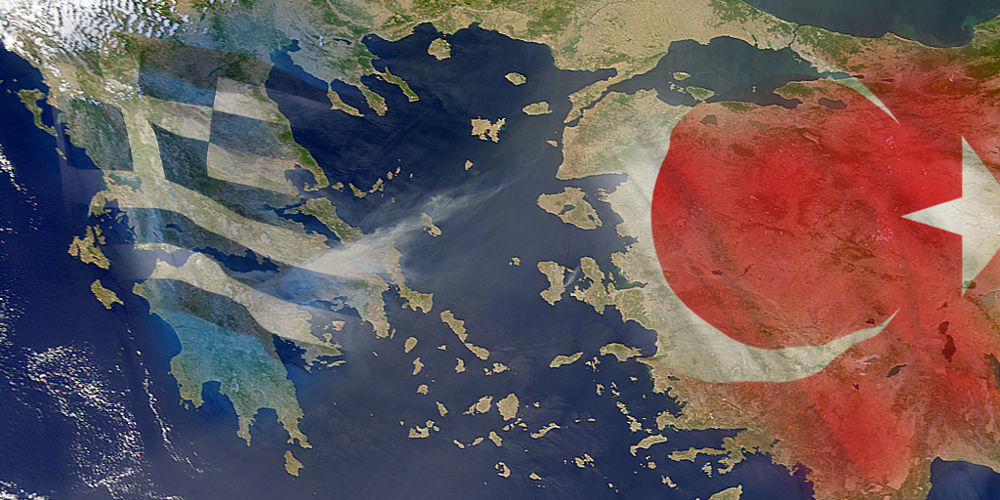
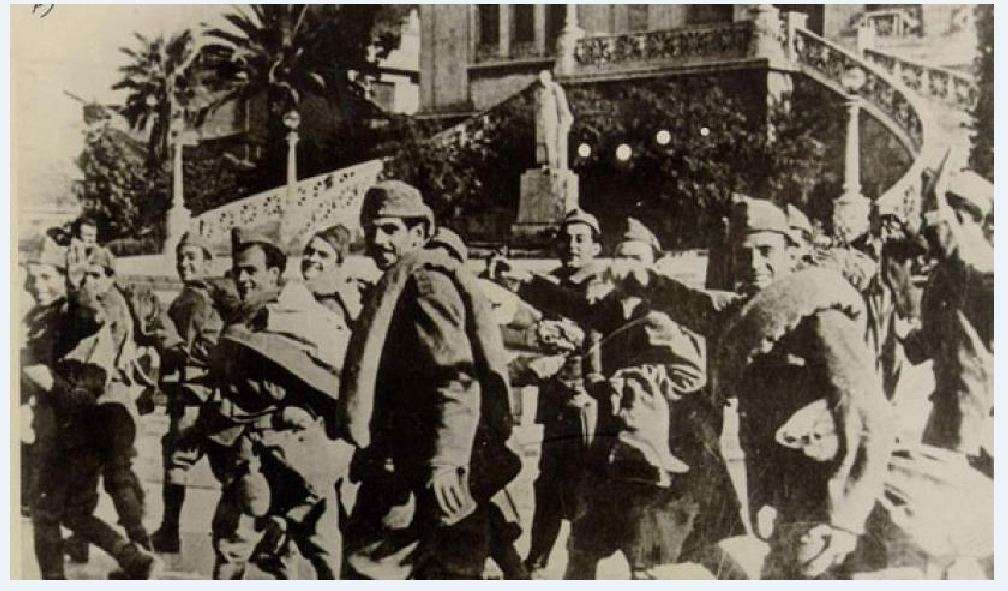 Ο εορτασμός της 28ης Οκτωβρίου έλαβε χώρα για πρώτη φορά το 1941 στην Κατοχή, μόλις ένα έτος από τη νικηφόρο επέλαση των ελληνικών στρατευμάτων, και δεν ήταν κάτι επιβεβλημένο, κατασκευασμένο άνωθεν. Τον εορτασμό καθιέρωσε αυθορμήτως ο ίδιος ο λαός.
Ο εορτασμός της 28ης Οκτωβρίου έλαβε χώρα για πρώτη φορά το 1941 στην Κατοχή, μόλις ένα έτος από τη νικηφόρο επέλαση των ελληνικών στρατευμάτων, και δεν ήταν κάτι επιβεβλημένο, κατασκευασμένο άνωθεν. Τον εορτασμό καθιέρωσε αυθορμήτως ο ίδιος ο λαός.


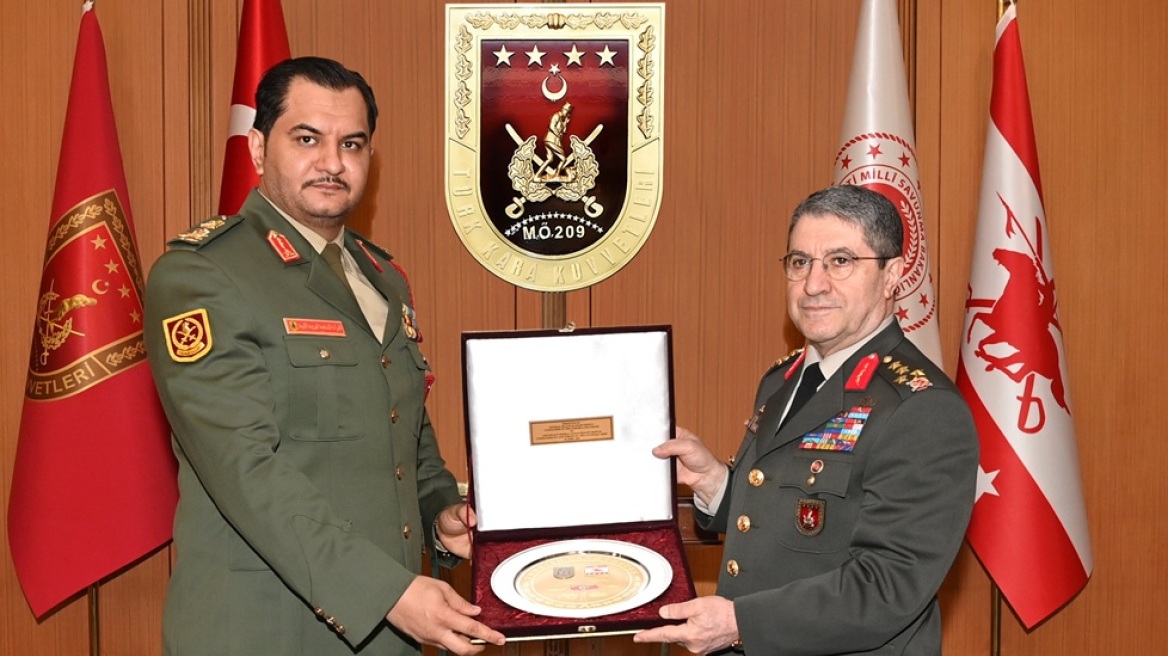




 The US Air Force's F-35 fifth-generation fighter performs during Aero India 2025, a military aviation exhibition at the Yelahanka Air Force Station in Bengaluru, on 13 February 2025 (Idrees Mohammed/AFP)
The US Air Force's F-35 fifth-generation fighter performs during Aero India 2025, a military aviation exhibition at the Yelahanka Air Force Station in Bengaluru, on 13 February 2025 (Idrees Mohammed/AFP)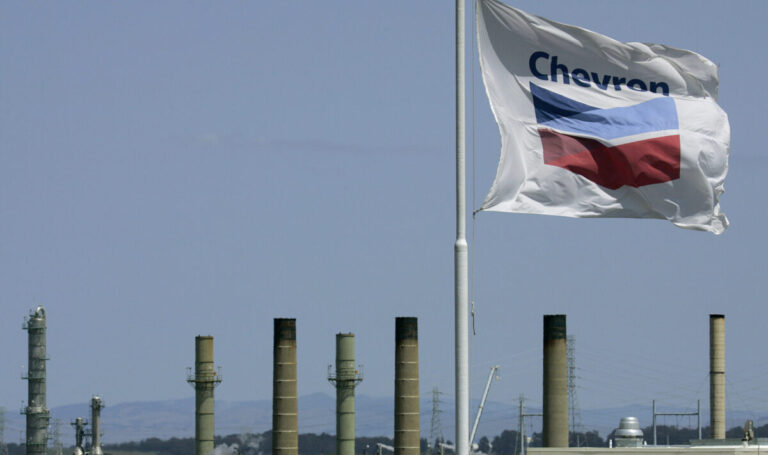


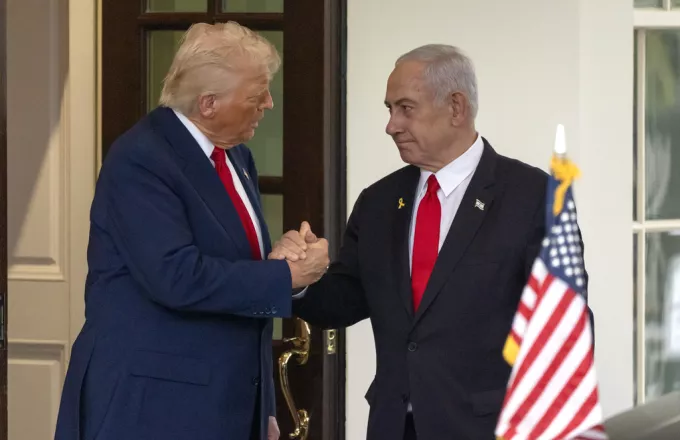 Ο Νετανιάχου δήλωσε πως δεν θέλει «η Συρία να χρησιμοποιηθεί από οποιονδήποτε, συμπεριλαμβανομένης της Τουρκίας, ως βάση επίθεσης εναντίον του Ισραήλ»
Ο Νετανιάχου δήλωσε πως δεν θέλει «η Συρία να χρησιμοποιηθεί από οποιονδήποτε, συμπεριλαμβανομένης της Τουρκίας, ως βάση επίθεσης εναντίον του Ισραήλ»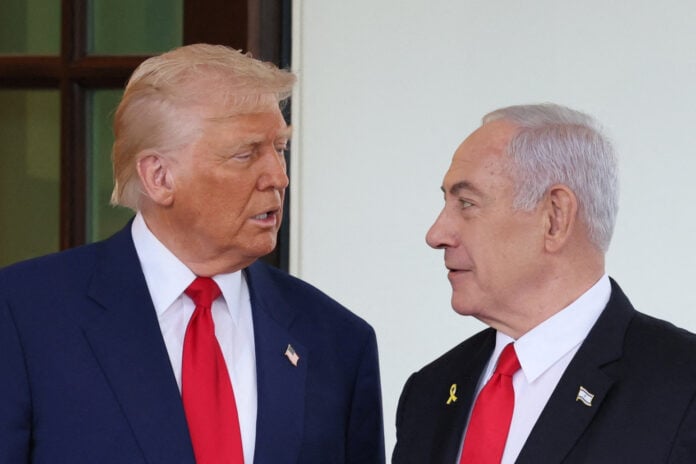 Τι ανέφερε ο Λευκός Οίκος
Τι ανέφερε ο Λευκός Οίκος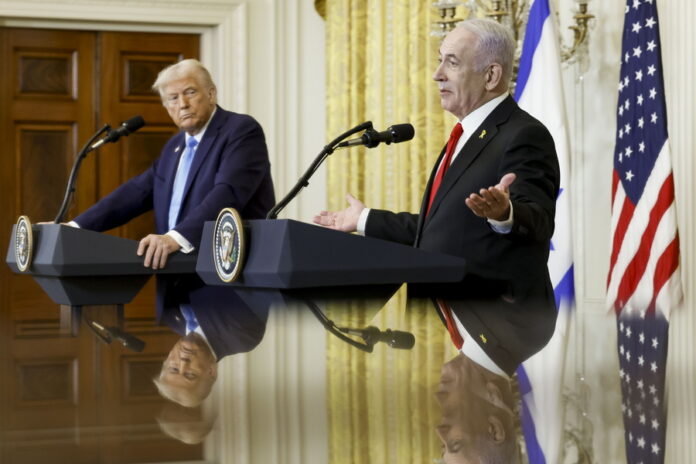 Ο Νετανιάχου αναμένεται να επιστρέψει στο Ισραήλ την Τετάρτη
Ο Νετανιάχου αναμένεται να επιστρέψει στο Ισραήλ την Τετάρτη H Ελλάδα θέλει να χτίσει ένα σύστημα πολυεπίπεδο με 5 φάσεις και το πιο ισχυρό στοιχείο θα είναι οι Βarak
H Ελλάδα θέλει να χτίσει ένα σύστημα πολυεπίπεδο με 5 φάσεις και το πιο ισχυρό στοιχείο θα είναι οι Βarak Ο χρόνος παράδοσης
Ο χρόνος παράδοσης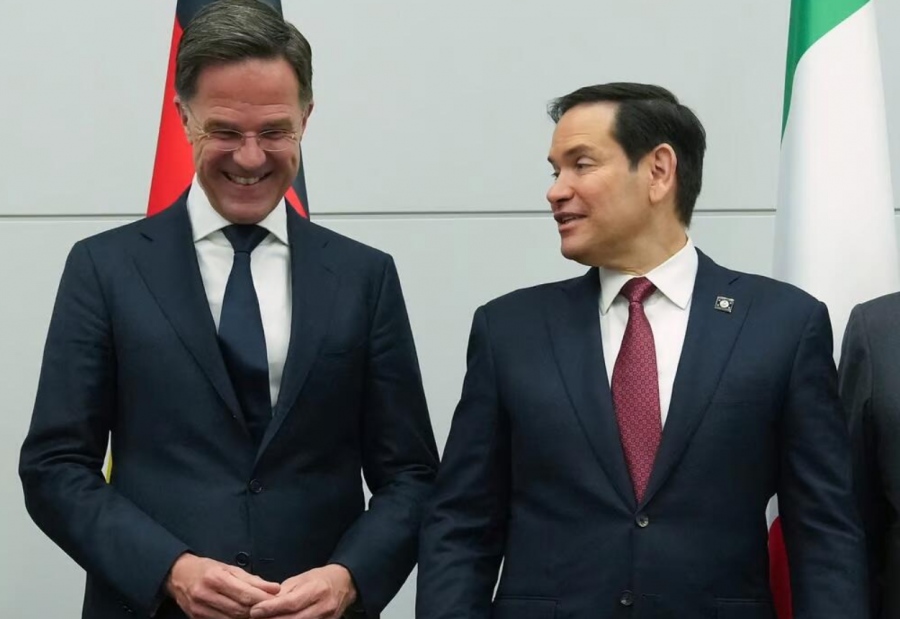 Ο ΥΠΕΞ των ΗΠΑ διαβεβαίωσε ότι η Ουάσιγκτον είναι προσηλωμένη στο ΝΑΤΟ και δεν υπάρχει αμφιβολία θα παραμείνει μέλος της στρατιωτικής συμμαχίας
Ο ΥΠΕΞ των ΗΠΑ διαβεβαίωσε ότι η Ουάσιγκτον είναι προσηλωμένη στο ΝΑΤΟ και δεν υπάρχει αμφιβολία θα παραμείνει μέλος της στρατιωτικής συμμαχίας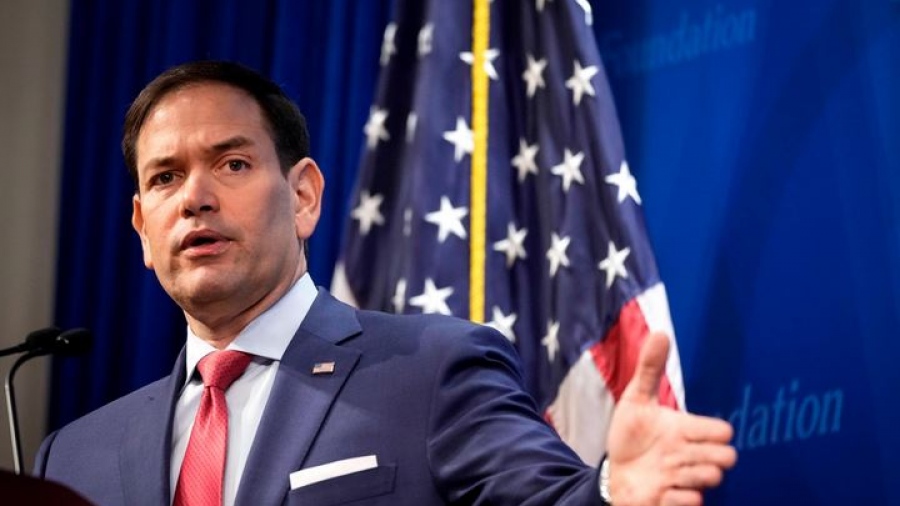 Ο υπουργός Εξωτερικών των ΗΠΑ Marco Rubio προσπάθησε να καθησυχάσει τους συναδέλφους τουΗ συνάντηση των υπουργών Εξωτερικών των χωρών της Βορειοατλαντικής Συμμαχίας στις Βρυξέλλες αποκάλυψε μια βαθιά κρίση.Οι σύμμαχοι δεν μπόρεσαν να καταλήξουν σε κοινή θέση ούτε για τη Γροιλανδία ούτε, ακόμη περισσότερο, για την Ουκρανία.Όμως η Ουάσιγκτον απαιτεί από τους Ευρωπαίους να εγκαταλείψουν τα κοινωνικά προγράμματα προκειμένου να ενισχύσουν τους στρατούς τους.Το κλίμα στις διήμερες συνομιλίες ήταν τεταμένο, ανέφεραν πηγές.Κατηγόρησαν τους Αμερικανούς ότι χάνουν το ενδιαφέρον τους για τη συμμαχία και απειλούν την εδαφική ακεραιότητα της Δανίας.Ο υπουργός Εξωτερικών των ΗΠΑ Marco Rubio προσπάθησε να καθησυχάσει τους συναδέλφους του.«Οι ΗΠΑ είναι τώρα πιο ενεργές στο ΝΑΤΟ από ποτέ.Οι υστερίες και οι υπερβολές που βλέπω στα ξένα μέσα ενημέρωσης και σε ορισμένα αμερικανικά είναι αβάσιμες.Ο πρόεδρος Trump δήλωσε ξεκάθαρα ότι υποστηρίζει το ΝΑΤΟ θα παραμείνουμε στη συμμαχία» τόνισε ο Marco Rubio.Αλλά η Ουάσιγκτον έχει παράπονα.«Θέλουμε να ενισχύσουμε το ΝΑΤΟ, να κάνουμε το μπλοκ πιο βιώσιμο.Ο μόνος τρόπος για να γίνει αυτό είναι να επεκτείνουμε την ικανότητα των εταίρων μας, των κρατών που αποτελούν μέρος αυτής της σημαντικής συμμαχίας.Δίνουμε προτεραιότητα στην άμυνα λόγω του ρόλου που διαδραματίζουμε στον κόσμο και θέλουμε οι εταίροι μας να κάνουν το ίδιο», τόνισε ο Marco Rubio.Πρέπει να δαπανήσουμε όχι 2%, αλλά 5% του ΑΕΠ για την άμυνα.Ορισμένα κοινωνικά προγράμματα θα πρέπει να εγκαταλειφθούν, αλλά η Ουάσιγκτον δεν βλέπει τίποτα κακό σε αυτό.Και «ένας πόλεμος πλήρους κλίμακας στην καρδιά της Ευρώπης» θα πρέπει να υπενθυμίσει στην ΕΕ ότι «απαιτείται ακόμη σκληρή δύναμη ως αποτρεπτικός παράγοντας», πρόσθεσε ο Marco Rubio.
Ο υπουργός Εξωτερικών των ΗΠΑ Marco Rubio προσπάθησε να καθησυχάσει τους συναδέλφους τουΗ συνάντηση των υπουργών Εξωτερικών των χωρών της Βορειοατλαντικής Συμμαχίας στις Βρυξέλλες αποκάλυψε μια βαθιά κρίση.Οι σύμμαχοι δεν μπόρεσαν να καταλήξουν σε κοινή θέση ούτε για τη Γροιλανδία ούτε, ακόμη περισσότερο, για την Ουκρανία.Όμως η Ουάσιγκτον απαιτεί από τους Ευρωπαίους να εγκαταλείψουν τα κοινωνικά προγράμματα προκειμένου να ενισχύσουν τους στρατούς τους.Το κλίμα στις διήμερες συνομιλίες ήταν τεταμένο, ανέφεραν πηγές.Κατηγόρησαν τους Αμερικανούς ότι χάνουν το ενδιαφέρον τους για τη συμμαχία και απειλούν την εδαφική ακεραιότητα της Δανίας.Ο υπουργός Εξωτερικών των ΗΠΑ Marco Rubio προσπάθησε να καθησυχάσει τους συναδέλφους του.«Οι ΗΠΑ είναι τώρα πιο ενεργές στο ΝΑΤΟ από ποτέ.Οι υστερίες και οι υπερβολές που βλέπω στα ξένα μέσα ενημέρωσης και σε ορισμένα αμερικανικά είναι αβάσιμες.Ο πρόεδρος Trump δήλωσε ξεκάθαρα ότι υποστηρίζει το ΝΑΤΟ θα παραμείνουμε στη συμμαχία» τόνισε ο Marco Rubio.Αλλά η Ουάσιγκτον έχει παράπονα.«Θέλουμε να ενισχύσουμε το ΝΑΤΟ, να κάνουμε το μπλοκ πιο βιώσιμο.Ο μόνος τρόπος για να γίνει αυτό είναι να επεκτείνουμε την ικανότητα των εταίρων μας, των κρατών που αποτελούν μέρος αυτής της σημαντικής συμμαχίας.Δίνουμε προτεραιότητα στην άμυνα λόγω του ρόλου που διαδραματίζουμε στον κόσμο και θέλουμε οι εταίροι μας να κάνουν το ίδιο», τόνισε ο Marco Rubio.Πρέπει να δαπανήσουμε όχι 2%, αλλά 5% του ΑΕΠ για την άμυνα.Ορισμένα κοινωνικά προγράμματα θα πρέπει να εγκαταλειφθούν, αλλά η Ουάσιγκτον δεν βλέπει τίποτα κακό σε αυτό.Και «ένας πόλεμος πλήρους κλίμακας στην καρδιά της Ευρώπης» θα πρέπει να υπενθυμίσει στην ΕΕ ότι «απαιτείται ακόμη σκληρή δύναμη ως αποτρεπτικός παράγοντας», πρόσθεσε ο Marco Rubio.

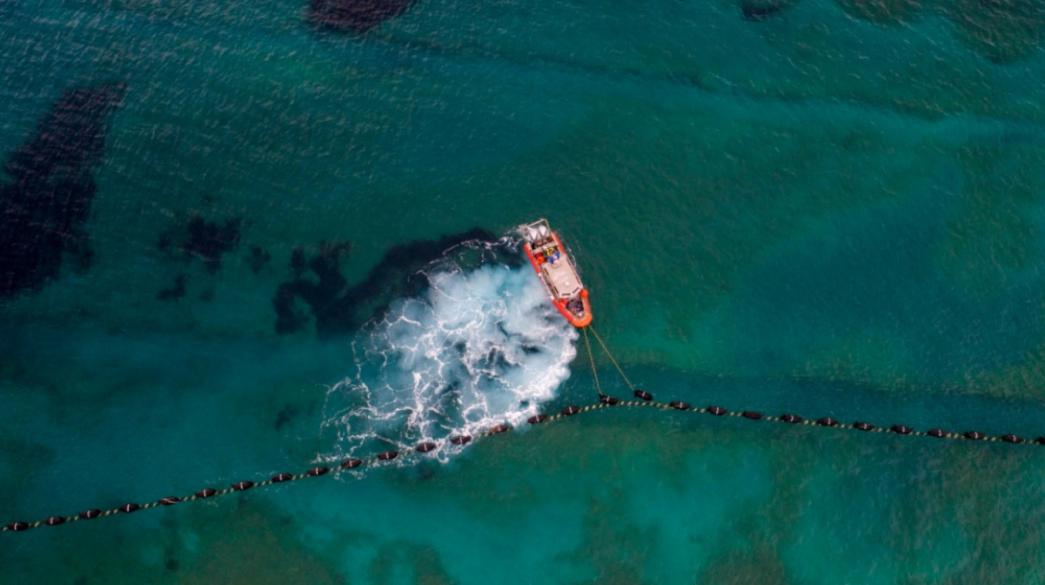
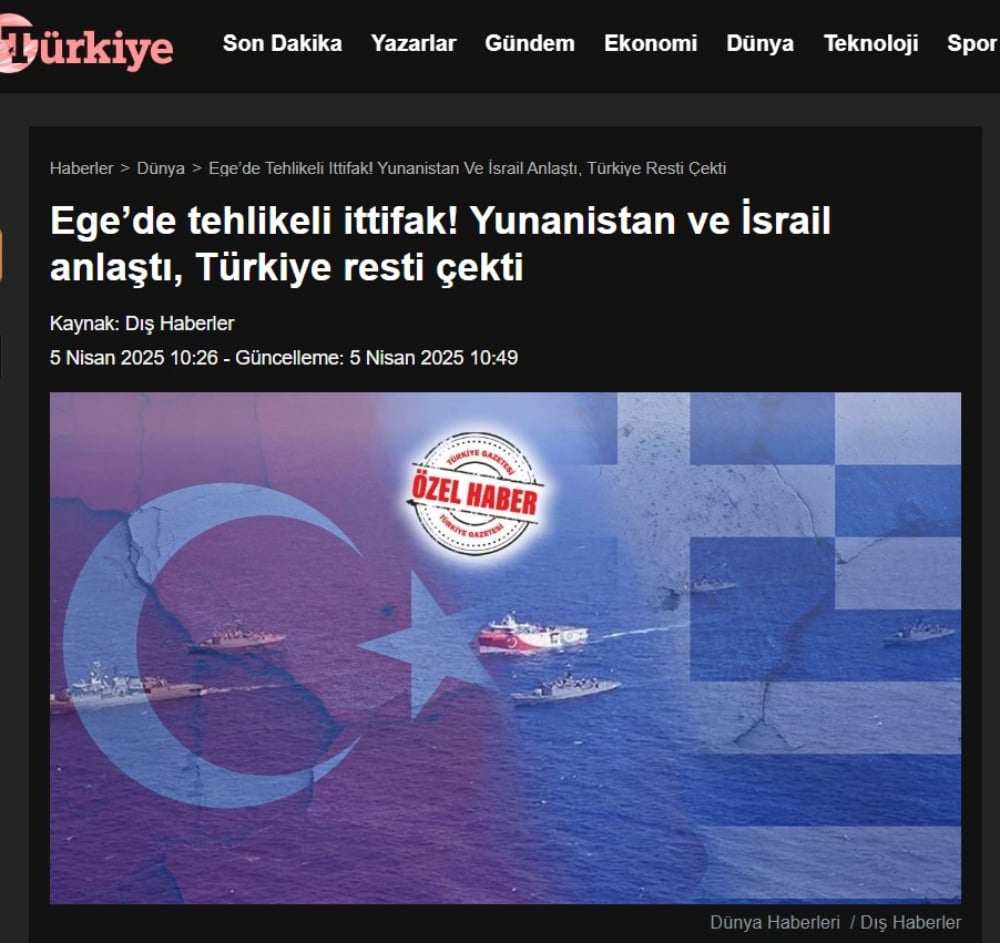 Ολόκληρο το δημοσίευμα της «Türkiye» έχει ως ακολούθως:
Ολόκληρο το δημοσίευμα της «Türkiye» έχει ως ακολούθως: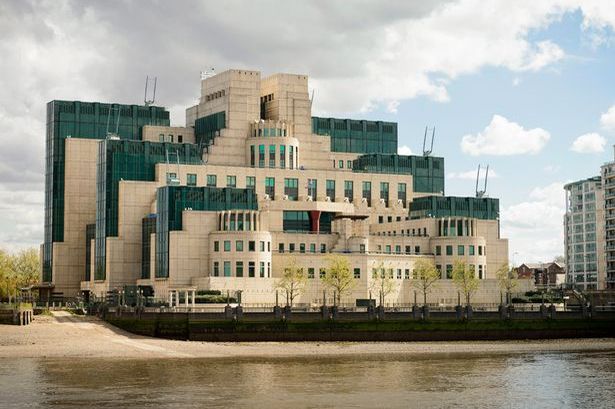
 Η φωτογραφία αυτή από το Αρχείο της ΜΙ5 καθώς μέλη της σε Εργαστήριο ελέγχουν ταχυδρομείο για μυστικά μηνύματα κατά τον Πρώτο Παγκόσμιο Πόλεμο.
Η φωτογραφία αυτή από το Αρχείο της ΜΙ5 καθώς μέλη της σε Εργαστήριο ελέγχουν ταχυδρομείο για μυστικά μηνύματα κατά τον Πρώτο Παγκόσμιο Πόλεμο.




